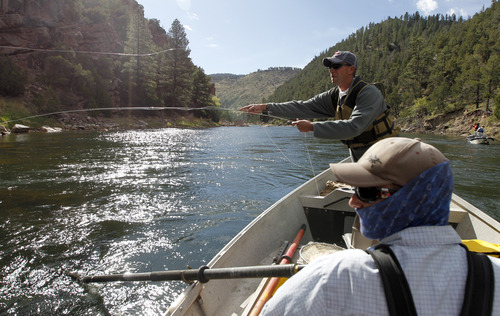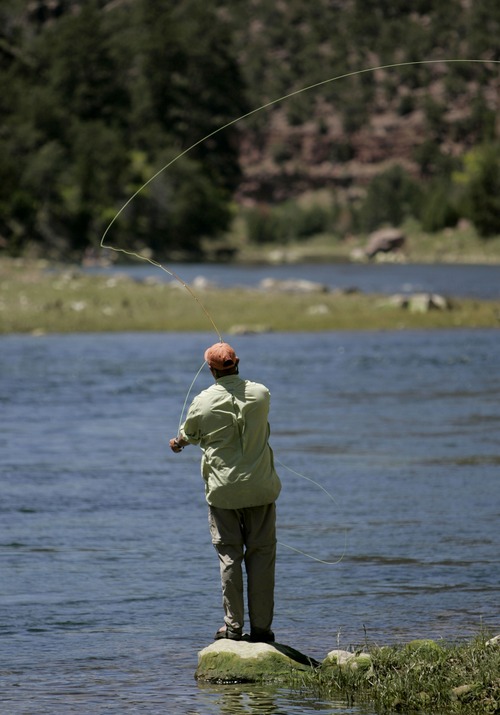This is an archived article that was published on sltrib.com in 2013, and information in the article may be outdated. It is provided only for personal research purposes and may not be reprinted.
The sponsors of rival House bills affecting public access to streams have withdrawn two pieces of legislation that pitted private property interests against recreational river users.
The bills were Rep. Kay McIff's HB68, which would have limited the reach of the public trust doctrine, and Rep. Dixon Pitcher's unnumbered proposal to ensure public access to streambeds that cross private lands, but only on rivers deemed "navigable."
On Friday, the two Republican lawmakers sat down with House Speaker Becky Lockhart and agreed to holster their measures while relevant lawsuits wind their way through the courts. Those suits challenge the validity of a 2010 law that allows property owners to bar anglers and other river users from streams flowing over their property.
That same day stream access advocates rallied at the Capitol, denouncing McIff's current bill and the one he successfully sponsored three years ago that triggered the suits.
"I feel great about it," said Utah Stream Access Coalition president Kim Olson said of the deal even though it meant halting legislation that would have restored access lost to the earlier law.
The coalition's lead suit in Heber City's 4th District Court, is awaiting a final ruling from Judge Derek Pullan, which will likely be appealed to the Utah Supreme Court. Last month he fielded supplemental arguments over the applicability of public trust — the legal doctrine that some waterways and coastlines are so vital to commerce that they must be administered for the public's benefit — to the river access dispute.
McIff's latest bill sought to narrow the scope of the public trust to only what is specified in statute and the Utah Constitution. His agreement to withdraw the measure avoids a legislative showdown, according to Pitcher, from Ogden.
"He was kind and considerate and was able to see there were two sides to this and he wanted to work with us," Pitcher said. "They [stream access proponents] are only asking for a compromise. They understand the importance of property rights but at the same time that the water belongs to the public."
Pitcher's "Public Waters Access Act" would have largely repealed McIff's HB141 by ensuring access to navigable riverbeds below the high water line, but only in situations where users get to the river from public access points — not through private property.
Modeled on Idaho's stream-access law, the bill used the so-called log test to determine whether a stream qualifies as navigable. Under that standard, it must be able to float a six-foot log at high water.
"It excludes small streams so we don't have to worry about a fisherman walking up at a wedding in Mill Creek," Olson said, referring to the popular destination for private-venue receptions and outdoor enthusiasts just outside Salt Lake City
According to stream access champions, there is plenty of historical evidence that the Provo and Weber — two popular Utah rivers where stream access conflicts are the most intense — were used to float logs and railroad ties to market in the 19th century.





